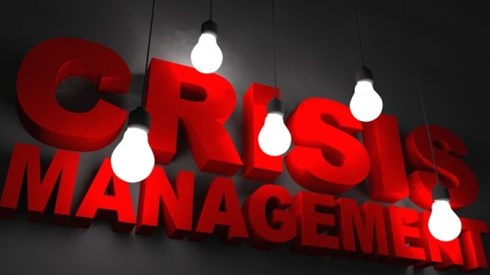COVID-19 Pandemic Highlights Need for a New Approach to Resilience

September 30, 2020

The COVID-19 pandemic has amplified the challenge posed by a siloed approach to business continuity management and crisis management, according to a new report examining risk professionals' response to the crisis.
The report, from London-based risk management organization Airmic and risk consultant Control Risks, found that the pandemic has highlighted the disconnect in many organizations between strategic risk and operational resilience and response.
New Challenges, New Lessons: COVID-19 Pandemic and the Future of Crisis Management, recommends changes to current practices aimed at creating effective resilience in the "new normal."
The report is based on a roundtable meeting Airmic and Control Risks held with the Airmic Enterprise Risk Management Special Interest group in June, as well as a survey of 132 risk professionals in August, seeking insights on how risk professionals and their organizations performed during the pandemic and competencies they might require in the future.
Airmic members surveyed responded positively about organizations' crisis management response and said they believe that as professionals they have the competencies and mindsets necessary to think and act at an enterprise level and deal effectively with the pandemic.
They also noted, however, that risk professionals will play a more critical role going forward and that additional knowledge and skills will be required to fill that role. The need for those supplementary abilities was particularly notable in crisis management and collaborative working, as well as in understanding the interconnectivity of various risks and engaging with business issues, the report found.
The report assumes that a pandemic is not a "black swan" risk, noting that the black swan metaphor promotes a sense of helplessness in the face of daunting threats and provides cover for failing to act in the face of clear and present dangers.
The World Economic Forum has included infectious disease on its Long-Term Risk Outlook Top 10 for more than 10 years, the report noted. Meanwhile, when asked in March 2019 to draft a "nightmare headline," Airmic members included a pandemic.
The report suggests that there is no simple crisis management solution, adding that throughout the pandemic, "Leadership has been challenged by a lack of useful intelligence and data to support business decisions, leading to knee-jerk, short-term reactions. Some supply chains were caught off guard, with limited contingency plans for strategic sourcing options in an interconnected global crisis."
Further, on an operational level, many businesses' processes fell short on such issues as long-term business impacts to office spaces, such as the ability to supply newly remote workers with laptops, monitors, and basic office furniture necessary to make working at home possible, safe, and healthy.
Organizations' business continuity management and crisis management should be aligned with the organizations' strategic directions, the report said, while the pandemic has drawn attention to a siloed approach to business continuity management and crisis management.
"Resilience is the ability of an organization to absorb and adapt in a changing environment," the report said. "Effective resilience is founded on successful risk identification and mitigation. Workforces that have a culture of risk identification, scenario modeling, and mitigation, as well as a system and culture encouraging them to 'speak up,' are much better placed to respond to the fluidity of crises and to embrace innovation and the potential upsides of uncertainty."
The cultural strength of organizations exhibiting such characteristics is set at the top, through visible executive support, through an active risk leadership, and by demonstrating the value or risk in decision making, according to the report.
"Achieving resilience is challenging and requires significant board-level support, but achieving and maintaining resilience and successful digital transformation is even more challenging," the report said.
The report emphasizes several key elements of resilience.
- Effective leadership is regarded as the most important resilience principle for organizations, with 70.7 percent of survey respondents saying it is among their organization's top three priorities. It requires a balance of senior leadership's involvement in continuous crisis management, while avoiding knee-jerk, ill-informed decision making, according to the report.
- Data is the second element, with organizations heavily reliant on government data as a source of risk intelligence during the pandemic. Among survey respondents, 84 percent found that government data is the most useful source of risk intelligence, 54.7 percent cited data from third-party sources, while 45.3 percent rely on the advice and guidance of risk advisers and 22.7 percent on information from insurance advisers.
- The third element of resilience highlighted is people, with 85.4 percent of those surveyed indicating they believe their organizations' risk professionals have the knowledge, skills, and behaviors needed to deal effectively with the pandemic, especially with regard to risk awareness and scenario planning. The survey found that the current workforce structure in some organizations is not set up to meet future requirements, with 39.5 percent reporting that their organizations are not considering remote working as a permanent option, even for roles that allow it, or are still tentative about remote working options.
- Operating models are also crucial to resilience, according to the report. There was a very strong perception that the crisis management of organizations is effective during the pandemic, according to 96.6 percent of survey respondents. But 41.7 percent of organizations indicated they plan to make changes to their supply chains, underscoring the variety of problems that can result from a supply chain disruption, from loss of revenue to reputational damage, breach of contract, loss of market share, and damage to stock prices.
"The onset of the COVID-19 pandemic challenged organizations and their leaders unlike anything else in recent memory," the report said. "The velocity of the spread of the pandemic drove government decisions to shut down some parts of life and economies at a shocking pace. Many business leaders had to make decisions of strategic importance in real time, knowing that the impact on their employees and stakeholders could be extraordinary."
The survey findings and discussions with professionals across various sectors indicate that the pandemic has modified crisis and business continuity thinking, the report said, adding that current organizational resilience structures have been set up to manage long-term, rising-tide crises such as pandemics.
It's clear that organizations are reviewing their approaches to resilience, the report said, and, going forward, top management and risk professionals must be comfortable dealing with uncertainty, allowing them to better identify opportunities and threats, and rise to the occasion.
September 30, 2020



